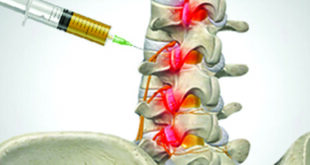 As we age, our bodies experience significant hormonal changes that can profoundly impact our overall health and vitality. Among these hormones, estradiol, a potent form of estrogen, plays a crucial role in both men and women, offering protection and enhancing quality of life, particularly during the life stages of menopause and andropause.
As we age, our bodies experience significant hormonal changes that can profoundly impact our overall health and vitality. Among these hormones, estradiol, a potent form of estrogen, plays a crucial role in both men and women, offering protection and enhancing quality of life, particularly during the life stages of menopause and andropause.
Estradiol’s Impact on Cardiovascular
and Menopausal Health
Menopause marks a significant physiological shift in a woman’s life, primarily due to a decrease in estrogen levels. This reduction can lead to various physical and emotional challenges. Estradiol replacement therapy (ERT) has proven effective in mitigating many of these effects, thereby improving health outcomes significantly. A pivotal study published in Menopause in 2005 detailed how estradiol therapy could slow the progression of subclinical atherosclerosis—a condition that often precedes serious cardiovascular events. The study demonstrated that estradiol enhances carbohydrate and lipid metabolism, improving key markers such as fasting glucose, insulin levels, and cholesterol profiles. Furthermore, it showed a reduction in the progression of carotid intima-media thickness, a direct marker of atherosclerosis, thereby highlighting estradiol’s role in cardiovascular protection.
Moreover, estradiol effectively alleviates common menopausal symptoms such as hot flashes, night sweats, and vaginal dryness. It enhances urinary health and reduces the prevalence of incontinence by improving the integrity of the urinary tract and surrounding pelvic muscles. Additionally, estradiol is crucial in maintaining bone density, significantly reducing the risk of osteoporosis and related fractures, prevalent concerns post-menopause.
Cognitive and Emotional Benefits
Estradiol extends its benefits to cognitive health, particularly in guarding against cognitive decline associated with aging, such as Alzheimer’s disease. Research underscores estradiol’s ability to enhance memory and cognitive functions by interacting with the brain’s renin-angiotensin system and influencing glucose metabolism—factors crucial in the development of Alzheimer’s. This interaction suggests that estradiol could play a protective role against the progression of cognitive impairments.
Furthermore, estradiol significantly impacts mood and emotional well-being; it has been shown to stabilize mood swings and alleviate symptoms of depression and anxiety commonly experienced during menopause. These effects are crucial for maintaining an overall sense of well-being during a period that many find psychologically challenging.
Estradiol’s Role in Men’s Health
While often considered primarily a female hormone, estradiol is also essential in male physiology, particularly concerning cardiovascular health. Research, such as the study conducted by Arnlöv et al. and published in the Annals of Internal Medicine (2006), documents that higher levels of estradiol in men are associated with a reduced risk of cardiovascular events. This finding challenges the traditional view of estrogen as predominantly female and highlights its importance in male hormonal balance and cardiovascular protection.
Metabolic Health and
Body Weight Regulation
Estradiol’s role in metabolic health is profound. It influences body weight regulation by affecting fat distribution and promoting healthier metabolism rates. For women undergoing menopause, estradiol replacement has shown to improve metabolic markers critical for managing weight and diabetes risk, such as insulin sensitivity and fasting glucose levels. These benefits underscore estradiol’s integral role in metabolic regulation during a period when women are particularly vulnerable to weight gain and metabolic disturbances.
Research published in Best Practice & Research: Clinical Endocrinology & Metabolism (2016) highlights the significant role of estradiol in maintaining energy homeostasis, particularly after menopause or ovariectomy. The decrease in estradiol levels during these times leads to increased appetite, reduced energy expenditure, and weight gain. However, these adverse effects can be mitigated or even reversed with estradiol replacement therapy.
Estradiol’s metabolic influence is primarily exerted through the hypothalamus, enhancing the activity of brown adipose tissue (BAT), which is crucial for thermogenesis and calorie burning. This process not only aids in weight management but also counters the metabolic slowdown typically seen with reduced calorie intake in diets.
Furthermore, estradiol impacts various metabolic pathways, including insulin sensitivity, pancreatic function, and lipid metabolism, and plays a critical role in the distribution and function of adipose tissue. This broad metabolic influence underscores the importance of considering estradiol supplementation as a strategic component of hormone replacement therapy, aimed not just at alleviating menopausal symptoms but also at managing age-related metabolic changes effectively.
Broader Implications
for Health and Longevity
The overarching effects of estradiol on health extend beyond individual symptoms or conditions. By modulating various biochemical pathways and physiological systems, estradiol serves as a keystone hormone that supports a wide array of bodily functions and processes. Its ability to enhance life quality and reduce the risk of numerous age-related diseases offers a compelling argument for its use in hormone replacement therapies.
Conclusion
Estradiol is not merely a reproductive hormone but a pivotal element in the broader spectrum of health maintenance. Its comprehensive influence on the cardiovascular system, bones, brain, and metabolic processes makes it an essential component of aging well. For both men and women, embracing estradiol replacement therapy can be transformative, offering a path to a healthier, more vibrant life as we age.
Personalized Care at
D&G Optimized Wellness and Hormones
D&G Optimized Wellness and Hormones offers a unique, concierge-style relationship between patients and our physician team, Dr. Jason De Leon and Dr. Rita Gillespie. This model ensures open and direct communication, providing a tailored and responsive healthcare experience. This is a practice with privilege.
Dr. Jason De Leon, M.D.
Raised in the Bronx and inspired by his healthcare-focused family, Dr. De Leon excelled in his studies, earning an academic scholarship to Barry University and later attending medical school at the University of Iowa. After completing his Emergency Medicine Residency at the University of Florida-Gainesville, he specialized in Bio-identical Hormone Replacement Therapy (BHRT) to enhance wellness and prevent chronic diseases.
Dr. Rita Gillespie, D.O.
Starting as a competitive runner in Philadelphia, Dr. Gillespie’s academic journey led her to LaSalle University and the Philadelphia College of Osteopathic Medicine. She completed her Emergency Medicine Residency at the University of Florida-Gainesville. With a holistic approach from her osteopathic training, she advocates for BHRT to promote graceful aging and vibrant health.
Accessible and Responsive Care
Our practice encourages patients to reach out to their physicians with any health concerns, ensuring continuous support and guidance. This approach fosters a deep, trusting relationship, setting a new standard in personalized healthcare.
At D&G Optimized Wellness and Hormones, we are your partners in achieving a healthier, more vibrant life.
D&G Optimized Wellness and Hormones
863-899-2404
info@optimizedwellness.net
optimizedwellness.net
 Central Florida Health and Wellness Magazine Health and Wellness Articles of the Villages
Central Florida Health and Wellness Magazine Health and Wellness Articles of the Villages



